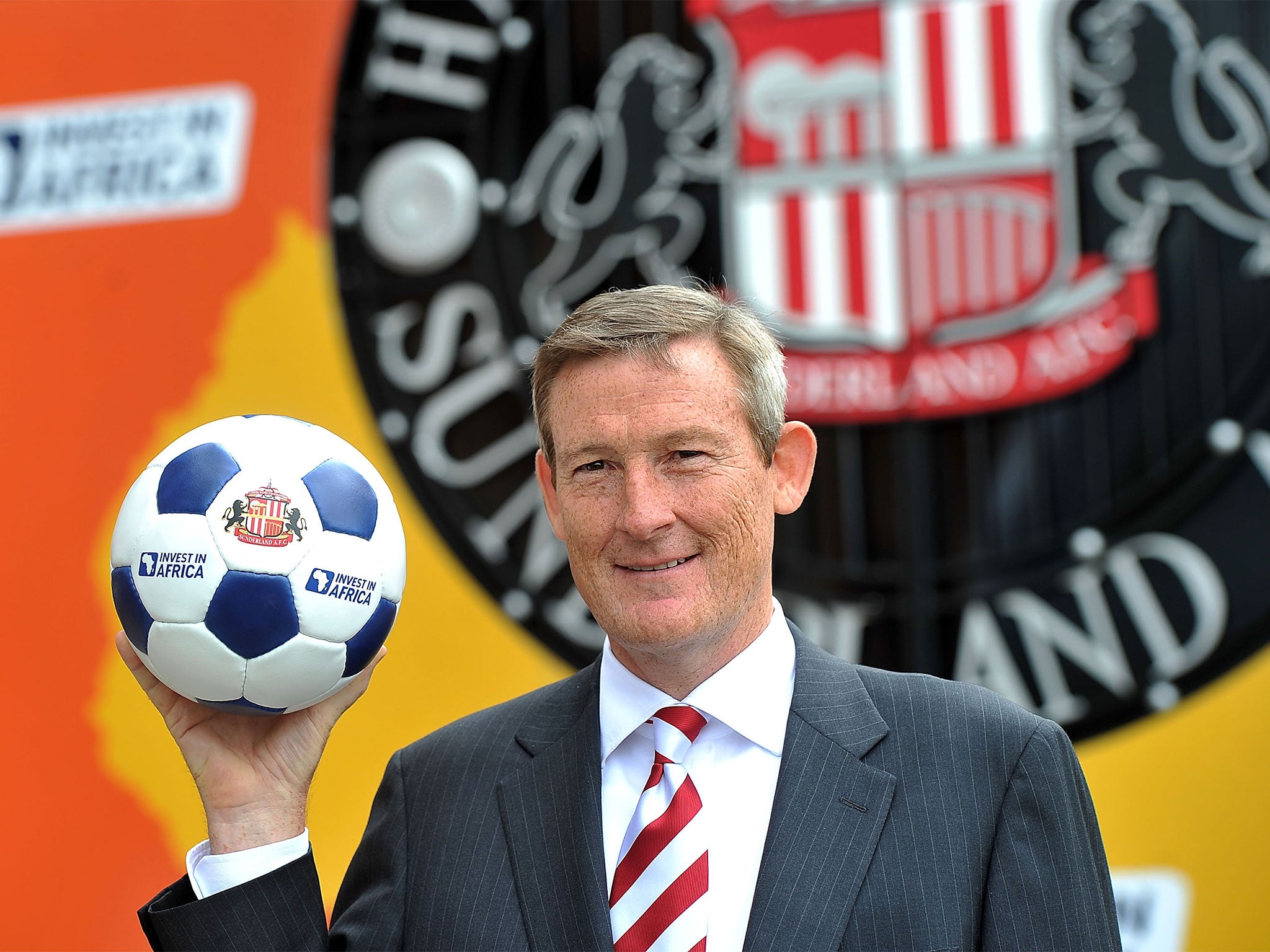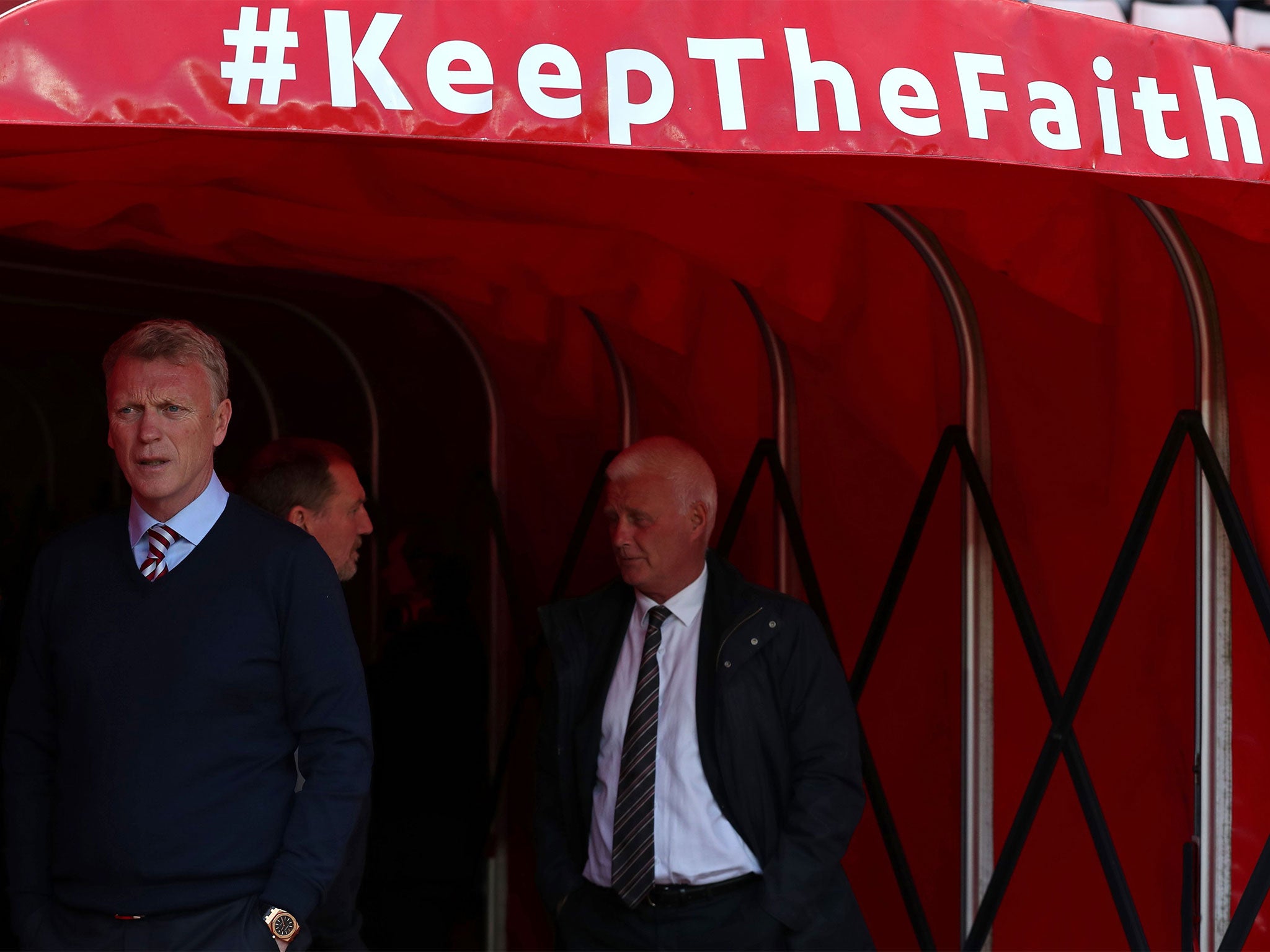Is there life in Sunderland's ghost town? An absentee owner, an under-pressure manager and a club sliding down the leagues
Ellis Short's London house may be more valuable than the club he's desperate to offload - that alone is a worrying sign for fans of a club drifting aimlessly in the wrong direction

Your support helps us to tell the story
From reproductive rights to climate change to Big Tech, The Independent is on the ground when the story is developing. Whether it's investigating the financials of Elon Musk's pro-Trump PAC or producing our latest documentary, 'The A Word', which shines a light on the American women fighting for reproductive rights, we know how important it is to parse out the facts from the messaging.
At such a critical moment in US history, we need reporters on the ground. Your donation allows us to keep sending journalists to speak to both sides of the story.
The Independent is trusted by Americans across the entire political spectrum. And unlike many other quality news outlets, we choose not to lock Americans out of our reporting and analysis with paywalls. We believe quality journalism should be available to everyone, paid for by those who can afford it.
Your support makes all the difference.The suggestion now is that Ellis Short’s house is worth more than his football club. The Sunderland owner is not just ending his time in the English game, he is also leaving this country.
For £49.5 million you can buy his home in Chelsea. For around £500,000 more, you can take a football club within one defeat of going bottom of the Championship. The billionaire Short is following his son’s tennis career to the Evert Tennis Academy in Florida. No one is quite sure where the football club will be when he returns.
On Tuesday night, six months after Sunderland were officially relegated from the Premier League following a one-nil defeat to Bournemouth, the club will go bottom of the Championship if they lose at home to Bolton.
One supporter, writing in the popular A Love Supreme Fanzine in the wake of Saturday’s latest defeat, this time to Bristol City, compared the city to a ghost town.
The Stadium of Light on a match day increasingly has the feel of the late bus, a strange mix of those who left it too late to get home. There is a bit of life at the start of the journey, a lull, people increasingly bewildered, many not quite sure why they’re still there, and when the drink - or the failing love for their club subsides - most depart. The stadium is nearly empty when each game finishes.
Sunderland’s first team last won a game of football on home soil on Saturday, December 16 when they defeated Watford one-nil. The victory moved them 18th in the table, one point away from safety. The then manager David Moyes said afterwards: “It was must-win. We had to work hard.”

There have been 17 games at the Stadium of Light since and Sunderland have won none of them. Seven of those have been in the second tier of English football this season.
If there is such a mood as apathetic anger, then the club’s supporters show it. They would like more fury but as a collective there is exhaustion; a punch drunk city can take no more from its club.
There was a chant of ‘You’re not fit to wear the shirt’ following the 2-1 loss to Bristol City, but most were on their way home by then. ‘Are you watching Ellis Short,’ used to be the chant of anger, but his absence has left the responsibility fall onto the shoulders of the chief executive, Martin Bain. He insists a second successive relegation has not been mentioned in the club’s boardroom.
“It’s not even a word that is discussed, internally,” he said. “It’s not something that is at the front of our mind in terms of anxiety that Sunderland football club is going down the way as opposed to up the way. Everyone has an absolute belief that we will turn things round and start to climb the table.
“I have a belief everyone who works alongside me cares for the club; putting the hours in, trying to put things right. We are trying to get better results on and off the pitch, we had 15 players leaving at the end of last season, ten new ones coming in and a new coaching staff. We have gone from £100 million roughly in broadcasting money to £40 million. It is massive to handle.
“If you lose £100 million in broadcasting money and there is a £10 million cheque to write for a mistake in the past, for Alvarez, then you have legacy transfers to deal with and payments that are still having to be made and the operational costs of the football club and you see where the money has gone, the overheads and the commitments.”

Bain has been a Sunderland employee for 14 months. There were redundancies following relegation. His wikipedia page describes him as ‘the grim reaper of the football club’. “A hatchet man is a word I wouldn’t use to describe myself,” he said. The club is £110 million in debt and failed to find a buyer in the summer. His next big call will be on the future of the manager Simon Grayson. There has been suggestion he will go if Sunderland lose against Bolton, but nothing concrete.
Grayson was in typically bullish mood ahead of such a huge game for a city and its football club.
“I’m 100 per cent I can turn it around,” he said. “I had the balls to come to this football club and show I can make a good club great again. I will stick my chest out. My message to the players is go out and show the fans you care.
“I’m working every day to improve this football club and there have been a lot of obstacles. I will come through hopefully very quickly. I know what we have to do. Do I think I am the right man for the job? Of course I do.
“I’m experienced and I’ve been through good and bad times as a manager. I can't think of too many other people who are in football at this moment in time who would be in a better position or could do a better job than I am doing.”
Then Grayson spoke of the Bolton game.
“It’s must win,” he added. “We have to work hard.”
Join our commenting forum
Join thought-provoking conversations, follow other Independent readers and see their replies
Comments